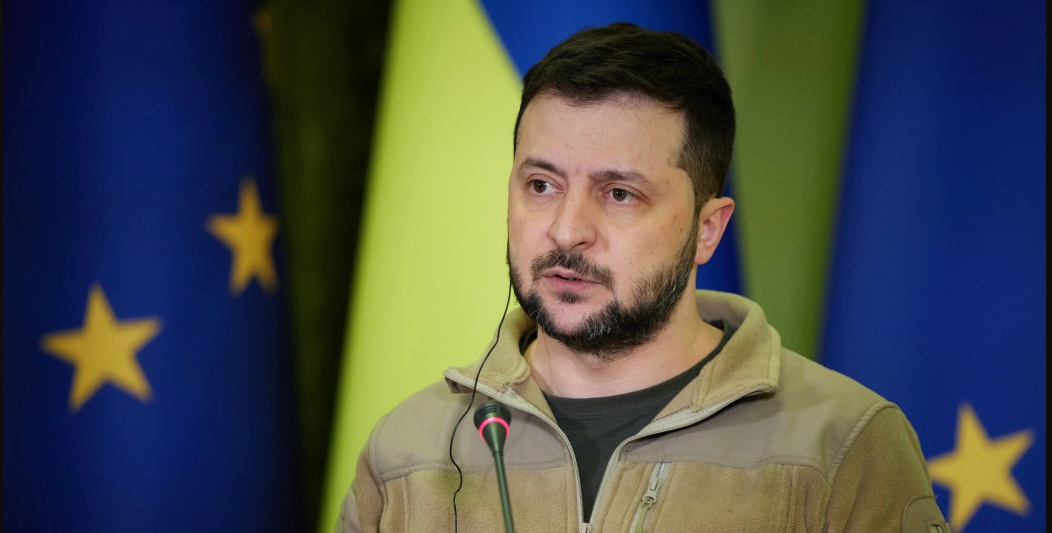Finance
The war in Ukraine: who should sacrifice?

I recently came across three news stories worth thinking about. The first story discussed the U.S. government’s role in encouraging arms exports, which often lead to violence in developing countries. Here is Bloomberg:
Last October, a recently fired police officer walked into his stepson’s kindergarten in Thailand’s remote northeast and killed 23 children and two teachers in less than 30 minutes. Panya Kamrab hacked some of his victims to death with a sugar cane machete and shot others with a pistol, including three local government officials who were having lunch outside the school. The disaster, which left a total of 36 dead, is considered the worst in Thai history and one of the worst in the world.
The killer’s gun, a Sig Sauer P365 – touted by the company so small enough to be easily concealed yet capable of holding 13 bullets – had traveled more than 8,000 miles from a factory on New Hampshire’s rocky seacoast to Thailand’s lush Nong Bua Lamphu province. It was part of a growing number of semiautomatic pistols and rifles exported by U.S. gun makers that have been linked to violent crimes. . . . The federal government has helped push international sales of rapid-fire weapons to record levels.
Is the US government responsible for the deaths caused by the arms exports it encourages? Or does the blame lie with those who used the weapons?
Here is Politics:
Secretary of State Antony Blinken concluded three days of meetings in China on Friday with a stark warning to China’s leadership: Stop exporting materials that will help Russia rebuild its industrial base or face US sanctions.
Chinese state-owned companies supply key components for Russia’s defense industrial base, including microelectronics and machine tools that “have a material impact on Ukraine” and represent “a growing threat that Russia poses to countries in Europe,” Blinken told reporters in a press conference in Beijing on Friday.
Is the Chinese government responsible for the way Russia uses its machine tools and microelectronics?
To be clear, there is a good argument for China to stop exporting key materials to Russia. But it is also important to recognize that countries often consider their own economic interests more important than those of small countries on the other side of the world. a third story examines just such a case, involving a division between the US government and Ukraine over the issue of drone strikes on Russia:
The US has urged Ukraine to halt attacks on Russia’s energy infrastructure, warning the drone strikes could drive up global oil prices and provoke retaliation, three people familiar with the discussions said.
The repeated warnings from Washington were issued to senior officials from Ukraine’s state security service, the SBU, and the military intelligence directorate, known as the GUR, the people told the Financial Times. . . .
One person said the White House was growing increasingly frustrated by brazen Ukrainian drone strikes that have hit oil refineries, terminals, depots and storage facilities across western Russia, affecting oil production capacity.
Russia remains one of the world’s top energy exporters, despite Western sanctions on the oil and gas sector. Oil prices have risen about 15 percent this year to $85 a barrel, pushing up fuel costs just as U.S. President Joe Biden begins his re-election campaign.
In both the US and China, there is a conflict between foreign policy interests and domestic economic interests. The Chinese economy benefits from exports of manufactured goods to China, and the US economy benefits from lower global oil prices. On the other hand, a Chinese export embargo would help Ukraine by weakening Russia’s defense capabilities, and drone strikes on Russia’s oil sector would deprive Russia of resources that help finance its war machine. How should these dilemmas be resolved?
As far as I know, the US prefers China to be the one to sacrifice in support of Ukraine. The US government is so deeply involved in this issue that it is threatening sanctions against China if the Chinese government does not implement sanctions against Russia. (Interesting, Indian exports The amount of manufactured goods sent to Russia has recently doubled in value, but the US is not threatening economic sanctions against India.)
On the other hand, the US government seems much less willing to make sacrifices when it comes to drone strikes. Although drones are an increasingly effective weapon, we ask Ukrainians to sacrifice themselves by not using this weapon against Russian oil refineries. High oil prices can hinder our consumers.
To be clear, I am not claiming that there are simple answers to these questions. Instead, I ask people to think about how these questions would be viewed if the roles were reversed. What if Chinese exported weapons caused chaos and murder in much of the developing world? How would we feel about that? How would a Chinese person feel if the US government imposed sanctions on China over machinery exports to Russia? How would Americans feel if the EU sanctioned the US for believing our cheap energy policies would lead to global warming?
Everyone feels passionate about certain issues. (I passionately support Ukraine’s defense of its homeland.) But people in different countries often have passionate opinions about different issues. I’m not sure it’s reasonable to expect uniformity of positions, nor am I sure it’s wise to sanction anyone who deviates from our position – especially if we exempt countries from sanctions alone but because they are our “friends”.
P.S. A recent story in Foreign Affairs suggests that the Ukrainian drone strikes on Russia are not increasing the global oil price, further weakening the US government’s position on the issue.













